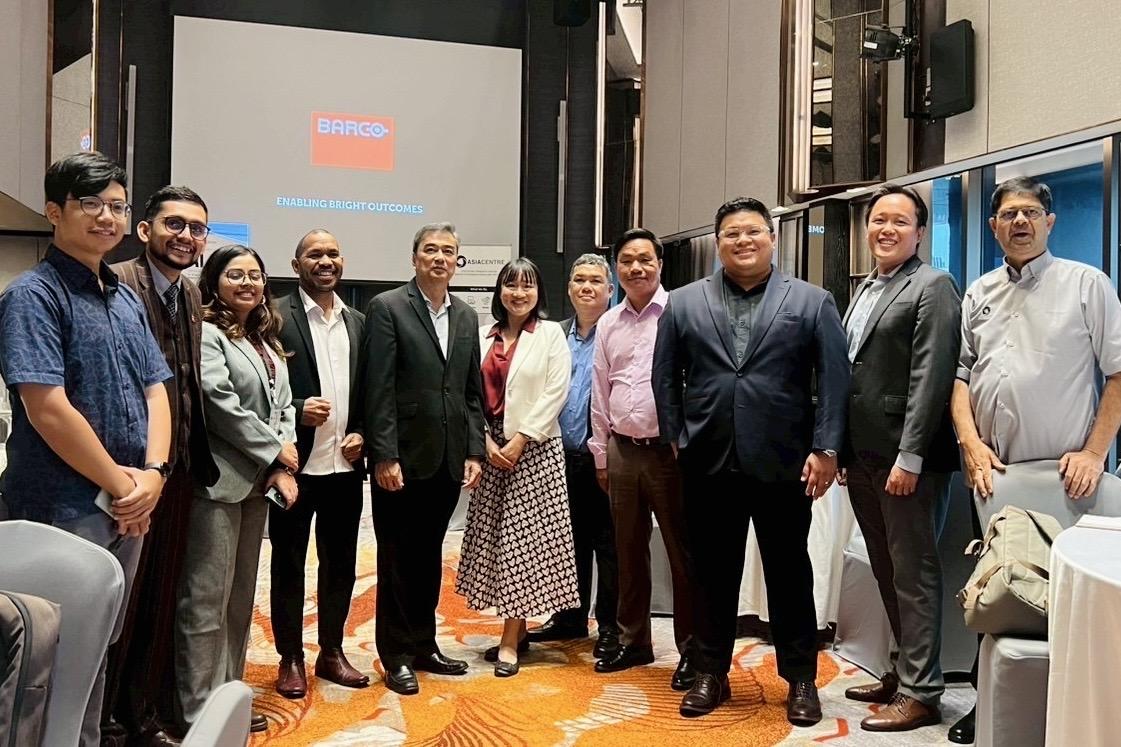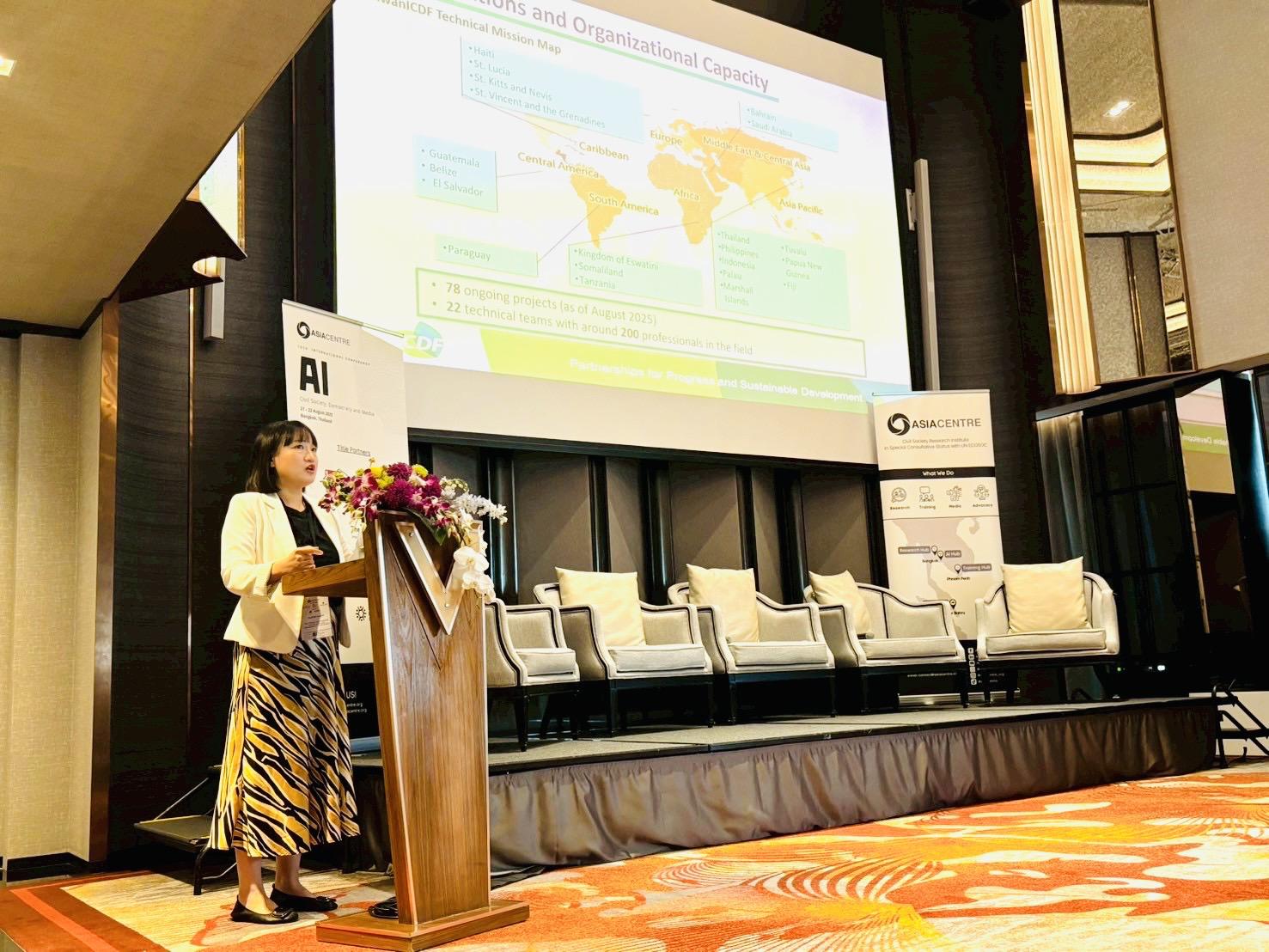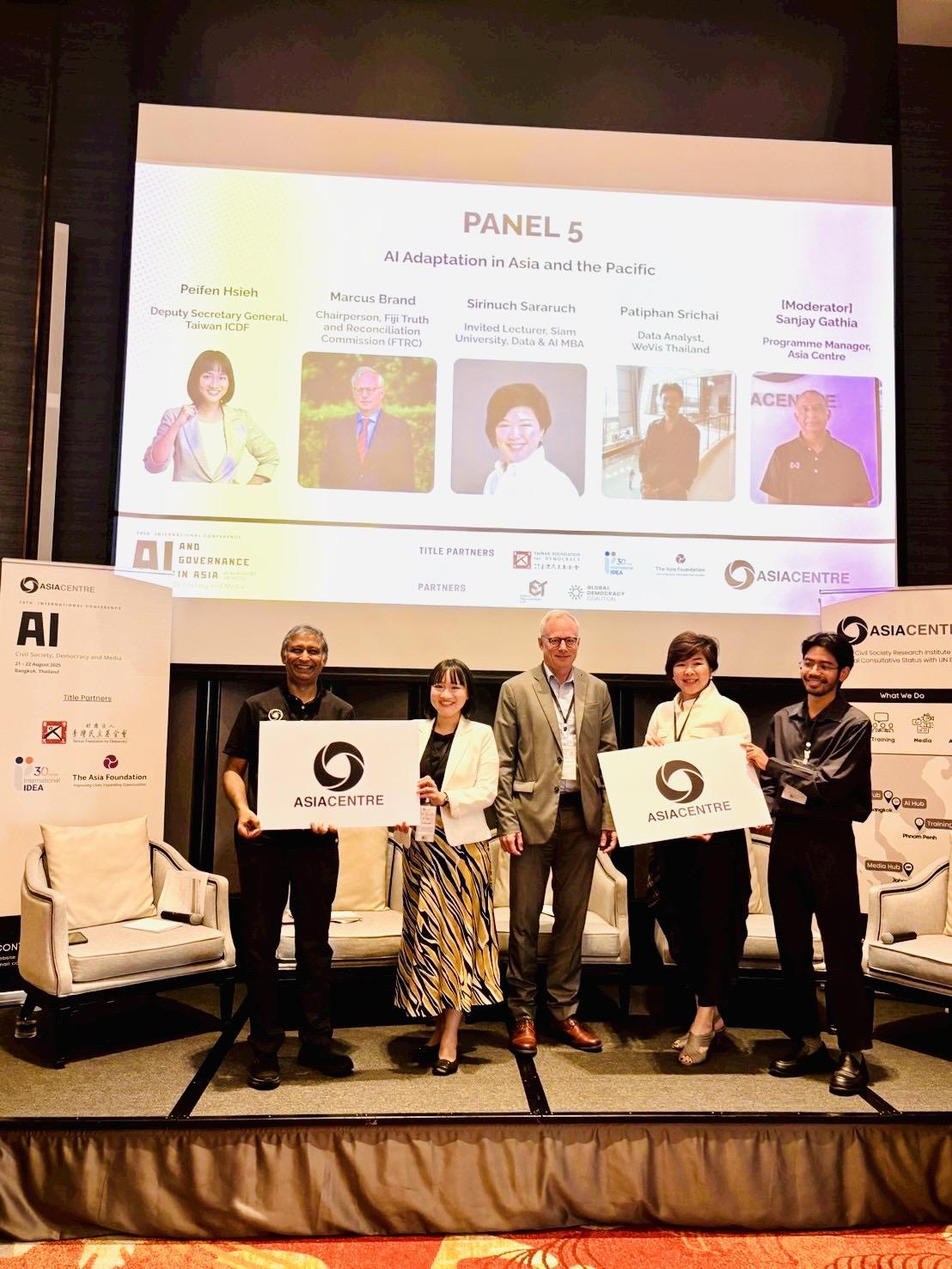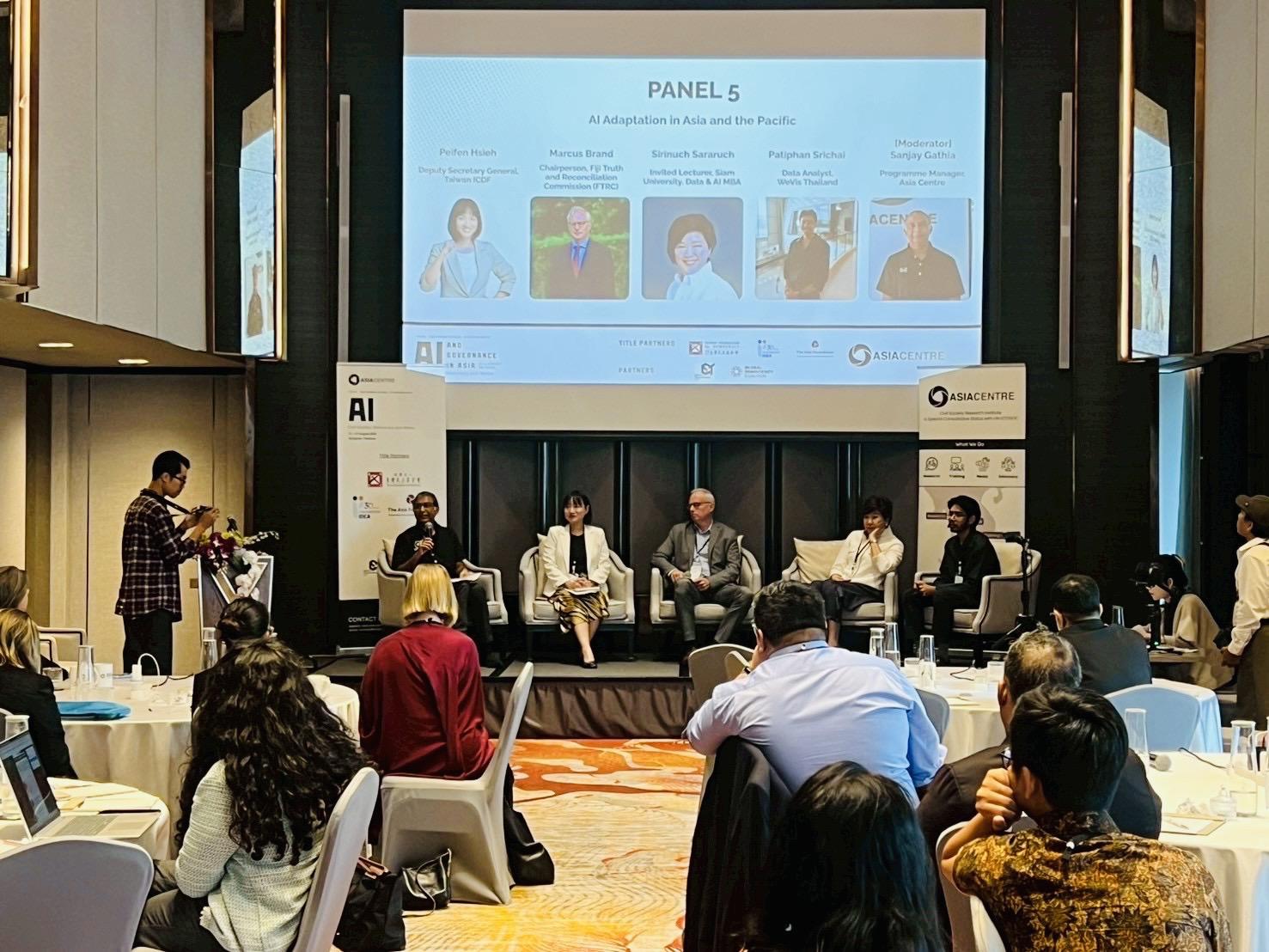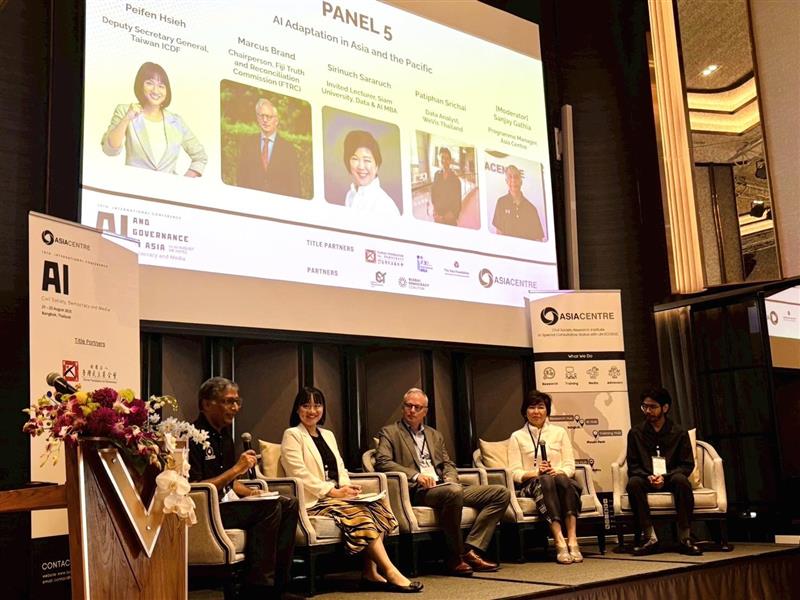
TaiwanICDF Debuts at Asia Centre International Conference, Showcases Taiwan’s AI Applications in Foreign Aid
The International Cooperation and Development Fund (TaiwanICDF) was invited for the first time to participate in a conference held by a leading think tank in Thailand this week.
Titled “AI and Governance in Asia,” the conference marked the 10th anniversary of Thailand-based think tank Asia Centre. The conference was held from August 21 to 22 in Bangkok and explored the impact of artificial intelligence (AI) on governance, democratic development, civil society, and the media across the Asia-Pacific region. TaiwanICDF Deputy Secretary General Peifen Hsieh represented Taiwan at the conference as the sole participant from the country.
Founded in Bangkok in 2015 and later expanding to Johor Bahru, Malaysia, Asia Centre holds special consultative status with the UN Economic and Social Council (ECOSOC). This year’s conference brought together 50 leaders and experts from governments, academia, media, and civil society across Southeast Asia, South Asia, and the Pacific. Former Thai
Prime Minister Abhisit Vejjajiva delivered the keynote speech, addressing the relationship between technology, AI, governance, and peace.
On August 22, Deputy Secretary General Hsieh joined the panel “AI Development and Adaptation in Asia and the Pacific” alongside experts from Fiji, South Korea, and Thailand, including representatives of Thai civil society organization WeVis. She highlighted Taiwan’s experience in applying AI in development aid projects, stressing that AI must be human-centered and paired with capacity building and training to strengthen governance while safeguarding people’s rights.
Hsieh shared the TaiwanICDF’s work in public safety and health. In Saint Vincent and the Grenadines, the organization supported the establishment of an intelligent license plate recognition system, improving police efficiency and public trust. In Paraguay, it implemented a nationwide health information system covering 75% of the population, creating a foundation for future AI applications. In Somaliland, one of its projects resulted in AI-generated medical records that have eased the burden on healthcare workers and advanced standardization. In Belize and Eswatini, it introduced AI-powered retinal imaging technology that has enabled early screening for diabetic patients.
Addressing questions on data limitations in smaller partner countries, Hsieh underscored that tailored AI solutions are essential, as larger organizations rarely prioritize such contexts. By adapting diverse tools to local conditions, the TaiwanICDF has amplified the social benefits of AI applications.
Other sessions of the conference examined AI’s role in democratic governance, media resilience, cross-sector collaboration, and regulatory frameworks. The TaiwanICDF’s participation at the conference marks Taiwan’s proactive engagement in international AI governance and its commitment to expanding AI applications in future technical cooperation projects.
- Update: 2025/08/22
- Hits:1386

